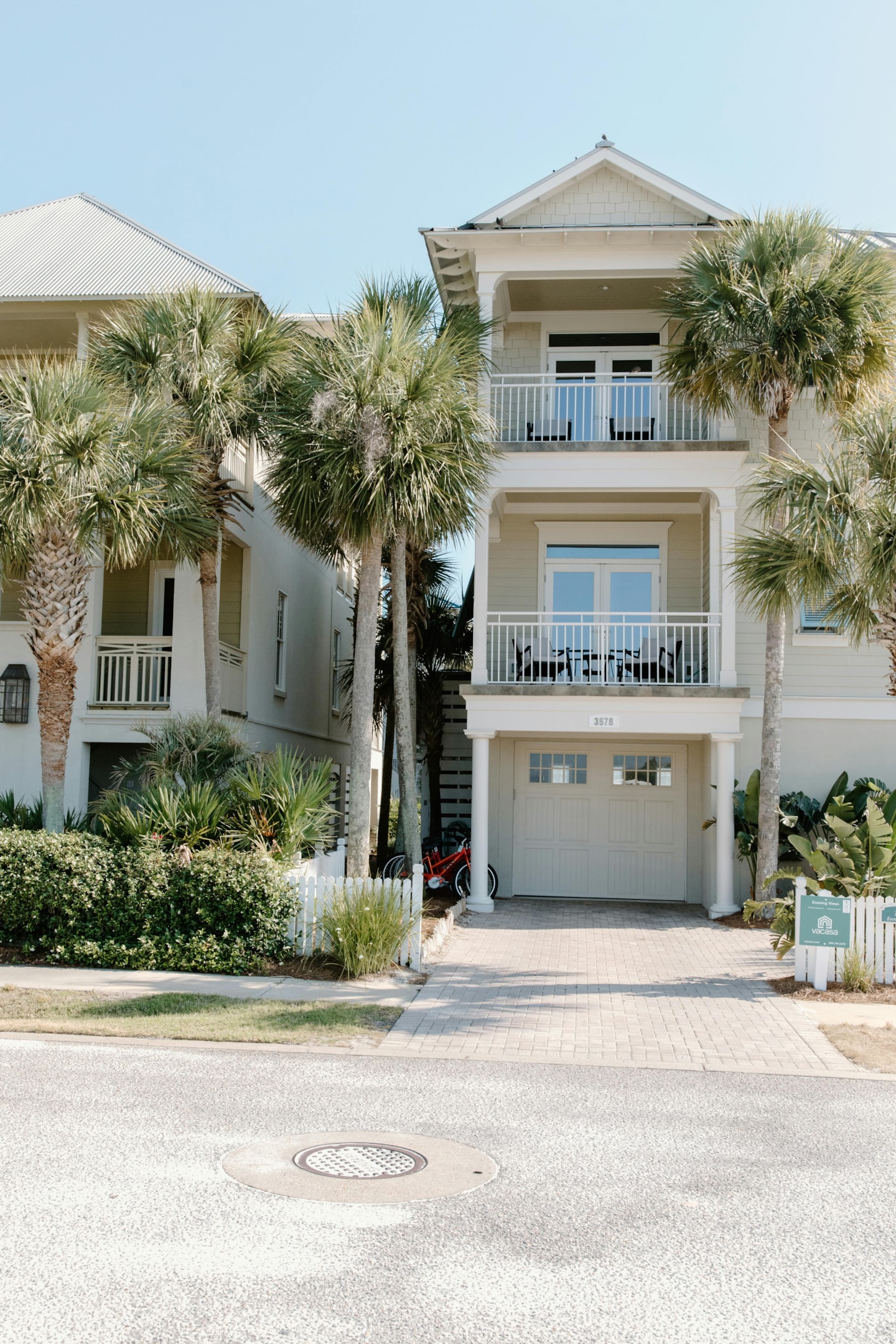The Benefits of Real Estate Investment in Florida You Should Know

Florida isn't just a retirement haven or a vacation destination. Florida is a top destination for both tourists and investors, known for its picturesque beaches and world-famous theme parks. As a populous state with a large and growing population, it offers unique advantages for real estate investment. It's a goldmine for real estate investors—if you know where to look, what to buy, and how to play the game. From beachfront condos to urban duplexes, Florida real estate offers incredible opportunities for cash flow, appreciation, and tax savings. Let's explore what makes Florida continue to dominate investment headlines and how you can tap into its massive potential.
Why Florida is a Hotspot for Real Estate Investors
Population Growth and In-Migration
Over the past decade, Florida has welcomed more than 300,000 new residents every year. This sustained population growth far exceeds the national average, making Florida a standout destination for relocation. Driven by job opportunities, favorable taxes, and quality of life, this influx fuels housing demand—especially in metros like Orlando, Tampa, and Jacksonville. As a result, Florida's markets have experienced significant growth and increased investment opportunities across the state.
No State Income Tax
Zero personal income tax = higher returns on rental income. Florida does not impose a personal income tax, which means investors keep more of their earnings compared to states like California or New York. This alone gives Florida an edge over those states.
Booming Tourism and Short-Term Rental Demand
Florida's beautiful beaches are a major attraction for tourists, helping the state host over 135 million visitors in 2023 alone. Renting short-term vacation properties, especially through platforms like Airbnb, is extremely popular in Florida's booming tourism market. The vacation rental market thrives here year-round, especially in coastal cities and major attractions like Disney World. For property owners, investing in this market can be a rewarding experience, offering both profit potential and personal fulfillment.
Best Cities in Florida to Invest In
Tampa
Tampa Bay is a balanced market with job growth and strong rental demand, offering stable rental rates and steady returns. Neighborhoods like Seminole Heights and Ybor City are popular for flips and buy-and-hold investments.
Orlando
Orlando is a top Airbnb market with consistent demand from tourists and students. Suburbs like Kissimmee and Davenport provide strong ROI and opportunities for value-add flips.

Jacksonville
Jacksonville is an affordable city with a steady economy and robust job market, ideal for long-term rentals and multifamily investments. Its warm weather and military presence support strong rental demand.
Miami
Miami has high entry prices but attracts strong international demand and appreciation due to its global connections. Luxury investors and developers dominate this key market.
Fort Myers & Cape Coral
Fort Myers and Cape Coral are fast-growing Southwest Florida markets popular for value-add flips and mid-term rentals, especially for snowbirds.
Types of Real Estate Investments in Florida
Single-Family Rentals (SFRs)
Single family homes are a popular choice for investors seeking stable income. Stable, predictable income—great for new investors. High demand from families and professionals in growing suburbs.
Multifamily Properties
2–4 unit buildings allow you to live in one unit and rent the rest (house hacking) or maximize income as a pure investment. To learn more about investing in this type of property, see Multifamily vs. Single Family Investing: Which Is Right for You?.
Vacation Rentals / Airbnb
From Disney-area homes to beachfront condos, short-term rentals can double or triple traditional rental income—if local ordinances allow it.
Fix-and-Flip Projects
Ideal in gentrifying neighborhoods. Just make sure you budget for Florida-specific renovations (e.g., hurricane windows, flood-proofing). To learn, read How to Flip Houses Successfully: Essential Tips and Common Pitfalls.
Commercial Real Estate
Strip malls, office space, medical buildings—Florida's growing population fuels demand in all sectors. See Maximizing Returns in Commercial Real Estate: Strategies for Investors to learn methods of optimizing a commerical real estate investment.
Understanding the Florida Housing Market Trends
Appreciation Trends
Cities like Tampa and Cape Coral have shown 20–30% growth in home values in some years. While this has cooled post-COVID, the long-term trend is still upward.
Median Home Prices
Miami: $580,000
Orlando: $390,000
Tampa: $420,000
Jacksonville: $340,000
Source: Zillow 2024
Inventory and Buyer Activity
Low inventory in most major metros continues to keep prices elevated despite rising interest rates. Demand remains strong for affordable homes.

How to Finance Real Estate Investments in Florida
Conventional Mortgages
Conventional mortgages are popular for single-family rentals and house hacking, offering lower rates if you have good credit and income. They usually require a 20% down payment and provide fixed or adjustable rates, ideal for long-term financing with predictable payments.
Hard Money Loans
Hard money loans are short-term, fast-funded loans perfect for fix-and-flip projects. They approve quickly, often in 5–7 days, but come with higher interest rates and fees. Best used for quick renovations and resale.
DSCR Loans
DSCR loans are favored by Florida investors scaling rental portfolios. Approval is based on the property's rental income, not personal income, making it easier to qualify. Ideal for investors looking to grow efficiently. To see other financing options for real estate investors, read Creative Financing for Real Estate Investors: Top Tips to Save Money.
Short-Term Rentals in Florida: A Goldmine or a Gamble?
Local Regulations Are Key
Local regulations vary by county in Florida, significantly impacting real estate investment strategies. For example, Orlando (Orange County) allows short-term rentals only in zoned areas, Miami Beach enforces extremely strict rules, while Kissimmee offers a more favorable environment for investors.
Occupancy Rates by Market
Occupancy rates for short-term rentals differ across Florida markets, with Orlando averaging around 78%, Miami about 70%, and Destin reaching approximately 82% during peak seasons.
Maximizing Nightly Rates
To stand out in Florida's competitive Airbnb market, investors can enhance their properties with amenities such as hot tubs, game rooms, and resort-style features, which help maximize nightly rental rates.
Florida Real Estate Tax Benefits and Considerations
Florida offers valuable tax benefits for real estate investors, including the Homestead Exemption that reduces taxable value on primary residences, the Save Our Homes Cap limiting annual assessed value increases, and the option for 1031 Exchanges to defer capital gains taxes by reinvesting in Florida properties.
Building Your Real Estate Investment Team in Florida
Successful investment in Florida real estate often requires assembling a knowledgeable team, including investor-savvy real estate agents who understand local markets and regulations, reliable property managers to handle tenant relations and maintenance, and experienced contractors familiar with Florida's building codes and weather requirements. For tips on building a strong team in the industry, see Building Real Estate Investment Team: The Ultimate Guide for Serious Investors.

Navigating the Legal Landscape
Understanding Florida's landlord-tenant laws, short-term rental licensing requirements, and the benefits of forming an LLC are crucial for protecting investments and ensuring compliance with local regulations, which vary widely across the state.
Using Data and Tools to Analyze Florida Deals
Investors can leverage data on top zip codes by ROI—such as Jacksonville (32210), Tampa (33612), and Orlando (32839)—and utilize tools like PropStream, Zillow, AirDNA, and local MLS access to make informed investment decisions.
Long-Term vs. Short-Term Strategy in Florida Real Estate
Long-term holds provide stable, consistent returns and tax advantages, appealing to investors focused on steady wealth building. Short-term rentals offer higher monthly income but come with increased risks and regulatory complexities. A balanced portfolio combining both strategies can diversify income and optimize overall returns.

Conclusion
Florida offers some of the most diverse, dynamic, and profitable real estate opportunities in the U.S. With no income tax, a growing population, and a tourism engine that never stops running, it's a smart play for any serious investor. However, like any opportunity, it comes with risks such as insurance costs, local regulations, and market competition, which require due diligence and a solid game plan. Whether you're flipping a bungalow in Tampa or buying a beachfront Airbnb in Destin, success in Florida starts with preparation—building your team, studying your market, and proactively creating the perfect deal rather than waiting for it. To learn more about investing in different parts of the nation, see The Ultimate Guide to Nationwide Leads for Real Estate Investing.